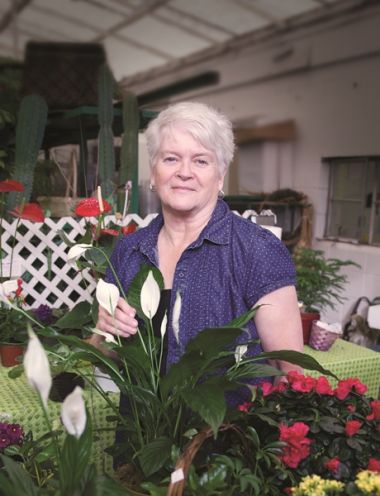Flower shop owner asks Washington High Court to overturn ruling on same-sex couple discrimination case

A 70-year-old grandmother who owns a flower shop has asked the Washington Supreme Court to overturn a lower court's ruling last year that found her liable for discriminating against a same-sex couple.
Lawyers for Barronelle Stutzman filed a 78-page brief with the High Court seeking to reverse the ruling of the Benton County Superior Court in February last year that said she violated the Washington Law Against Discrimination and the Consumer Protection Act for refusing to sell flowers through her shop Arlene's Flowers to couple Curt Freed and Robert Ingersoll in March 2013 because of her religious beliefs.
Alliance Defending Freedom (ADF) lawyers asked the state Supreme Court to take up the case last June after the lower court ordered Stutzman to pay penalties and attorney's fees for refusing to use her artistic abilities for a same-sex ceremony.
Stutzman referred the customer to other florists in the area.
ADF senior counsel Kristen Waggoner said the case involves free exercise of religion and free expression as an artist.
"Barronelle and many others like her around the country have been more than willing to serve any and all customers, but they are understandably not willing to promote any and all messages," she said. "No one should be faced with a choice between their freedom of speech and conscience on one hand and personal and professional ruin on the other."
Stutzman said the state attorney general's office offered to drop the case if she would oblige to serving same-sex weddings, according to WND.
"No. It's not about the money. It's about freedom," she told Fox News. "It's about our eight kids and our 23 grandchildren and now. You can't buy my freedom. There's not a price on freedom. It's me now, but tomorrow it's gonna be you. You gotta wake up."
She said the attorney general said the state could seize her assets if she loses the case.
"They talked about bullying me into doing something that is against my faith. They can't do that. They can get rid of me, but they can't get rid of God," she said.
According to the ADF brief, "The case boils down to this question: Is there room in our tolerant, diverse, and freedom-loving society for people with different views about the nature of marriage to establish their 'religious (or nonreligious) self-definition in the political, civic, and economic life of our larger community...?'"
"The trial court's and [the state's and the ACLU's] answer is 'no.' Their view is that those who seek to establish their self-identity based on the millennia-old view that marriage is solely between a man and a woman may be coerced by law to express different views or be silenced," it said, adding that this is contrary to traditions that citizens should be given room to express and not be coerced.
Stutzman said "people in creative professions regularly have to make decisions about where they lend their artistic talents and the events in which they will participate."
"For me, it's never about the person who walks into the shop, but about the message I'm communicating when someone asks me to 'say it with flowers,'" she said, adding that the government should respect everyone's freedom.











